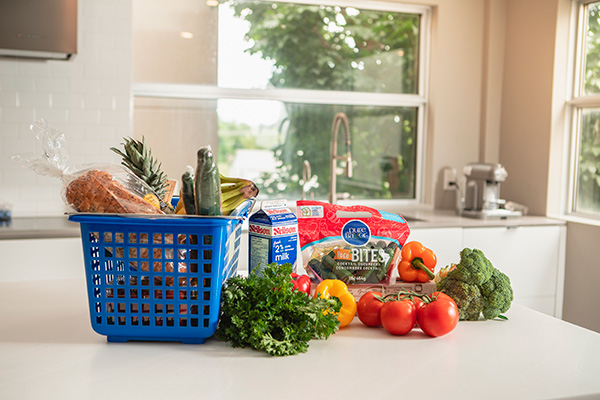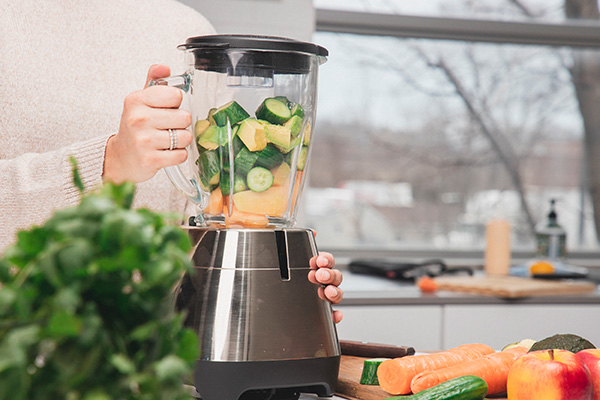Whether you are an adult or a child, there are many factors that can make it difficult to eat your recommended daily servings of vegetables. Time pressures and the convenient presence of fast-food restaurants often pose challenges for even the most health-conscious eater. These challenges are only compounded by the fact that some people just don’t love the taste or texture of most veggies. But as with any other food, there is no denying that providing your body with adequate amounts of vegetables is essential for optimum health.
What Are The Benefits of Eating Vegetables?

Vegetables are, without a doubt, an essential part of a healthy diet. They are a great source of many nutrients that our bodies need to function at their best. Let’s talk about some of the main nutrients you can find in common vegetables:
- Fiber – Vegetables are rich in fiber, which is very important for keeping our digestive systems healthy.
- Vitamins and minerals – Vegetables are also rich in vitamins and minerals such as Vitamin A, Vitamin C, and Vitamin K. These are important for keeping our immune systems healthy and keeping our eyesight healthy. Vegetables also provide us with plenty of iron which is an essential mineral that keeps our red blood cells healthy and our brains working properly.
- Carotenoids – Carotenoids are plant pigments that are beneficial for our health. They are found in abundance in certain vegetables such as carrots, tomatoes, and peppers.
- Antioxidants – Vegetables are rich in antioxidants, which are substances that protect our bodies from various diseases.
Resolving Common Objections to Eating Vegetables-

Vegetables are a great source of essential nutrients. Some people believe that they don’t taste good, some people think that they don’t taste like anything, and others think that they have weird textures. If you are one of these people or know someone who falls into one of these categories, then you have come to the right place.
Here are some ways to make vegetables taste better:
- Try different cooking methods – There are a variety of different ways to cook vegetables and some are better than others. For example, steaming vegetables retains many of their nutrients but roasting them reduces the amount of minerals in them.
- Experiment with different seasonings – A lot of people are not aware that vegetables can be seasoned with anything ranging from butter and salt, to rosemary and pepper. Try experimenting by seasoning Aurora Long Sweet Peppers with paprika or cumin.
- Add vegetables to smoothies – Adding vegetables to your smoothies is a great way to eat vegetables without actually having to taste them. Mini Cucumbers taste great in smoothies and are a great way to sneak in extra nutrients to your day!
- Add vegetables to your soups – Vegetables are great in soups. Not only are they easier to digest when cooked than when they are raw, but they can also be easily blended and remain almost completely undetectable. The next time you are craving tomato soup, use whole ingredients to make it yourself and blend Organic Luna Sweets® Cocktail Tomatoes to make a Creamy Tomato Soup.
- Get children involved – Adults may not be able to “force” themselves to eat vegetables, but children are naturally more curious and open to new experiences. Getting your children involved in the preparation and cooking of vegetables is a great way to introduce them to healthy foods early on in life.
The Benefits of Tomatoes, Peppers, and Cucumbers-
Vegetables are not all created equal and not all vegetables provide the same amount of vitamins and minerals. Some vegetables are richer sources of certain vitamins and minerals than others so it’s important to eat a variety. Greenhouse grown tomatoes, peppers, and cucumbers are grown in a sustainable environment and available year-round to provide your body with the nutrients it needs. They also offer the same consistent quality and fresh flavor to help you eat more of what is good for you.
Here are three vegetables that are particularly rich sources of vitamins and minerals:

TOMATOES-
Tomatoes are a rich source of lycopene, which is a carotenoid. This is known to be very beneficial for our health because it is an antioxidant that helps protect our bodies from various diseases. There are endless varieties of greenhouse grown tomatoes to benefit you and suit your lifestyle and appetite. Tomatoes are also high in potassium which is an essential mineral that helps your heart and muscles work properly.

PEPPERS-
Peppers are particularly rich in Vitamin C and Vitamin A. Vitamin C helps the body to create collagen, which is an essential protein in the body, and it also helps lower cholesterol for a heathier heart. Vitamin A is also an antioxidant that is beneficial for our health. Peppers contain a good amount of iron, an important mineral that promotes good circulation and oxygen distribution to keep your body functioning at peak performance.

CUCUMBERS-
Cucumbers may come in different sizes but they are all rich in both Vitamin K, and potassium, and are also a good source of Vitamin C. Vitamin K is an essential vitamin needed for building strong bones and preventing fractures so that you can stay active! Vitamin C is an antioxidant that helps to protect our bodies against various diseases. A balanced diet with potassium from fresh, healthy vegetables like cucumbers can also help regulate blood pressure.
HOW TO INCORPORATE MORE VEGETABLES INTO YOUR DIET-

There are many ways in which you can incorporate more vegetables into your diet. Not only will this help you meet your daily vegetable requirements, but it will also provide you with essential nutrients that you may be missing. Some ways in which you can add more vegetables to your diet include:
- Make vegetables the main part of your meal – A lot of people have the misconception that a meal must always have meat in it. But why should you have to eat meat as the main part of every meal? There are many vegetables that can make great main parts of meals.
- Eat vegetables as snacks – Many people snack on unhealthy foods such as chocolate bars, chips and other sweet & salty snack items; replace these unhealthy snacks with vegetables such as Cloud 9® Bite-Sized Fruit Tomatoes, Uno Bites™ Nano Cucumbers, and Aurora Bites Mini Sweet Peppers
- Add vegetables to your sandwiches – Instead of having a sandwich filled with meat or cheese, try having a sandwich with vegetables such as lettuce, tomatoes, and peppers.
- Try new ways of eating vegetables – Try out new recipes to keep things interesting around your table! We’ve got you covered with hundreds of fresh ideas that your whole family will love, explore here!
BOTTOM LINE-
We know that sometimes it can be difficult to consume the recommended servings of vegetables in one day but there are so many ways to incorporate them into your everyday life just by making small changes and trying new things with them. While eating enough vegetables is a very important part of a healthy diet, there are many other factors to consider as well to ensure that you are taking care of your body. This includes watching your sodium intake, drinking enough water, eating whole foods, and limiting added sugars. Vegetables are so important to your diet and to help your body function at its best that it’s worth the extra effort. They contain so many vitamins and minerals to benefit and fuel your body. There are so many health benefits of greenhouse grown vegetables that, if consumed regularly, will help you live your best life!


